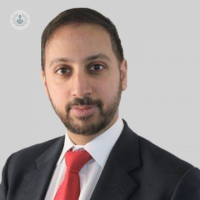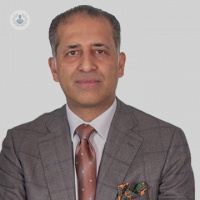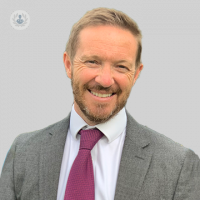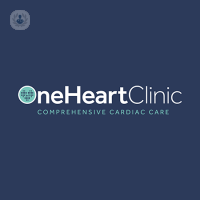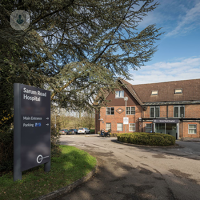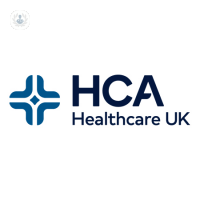What is PoTS syndrome?
PoTS syndrome is a condition where your heart beats significantly faster when you become upright from a seated or lying position. Many of us will experience an elevated heart rate when standing up, but in patients with PoTS syndrome, the heart carries on beating faster for a sustained period of time. Unlike many heart conditions, however, PoTS syndrome does not involve any change in blood pressure.

What are the symptoms?
The main symptom people report is feeling dizzy, lightheaded, or faint. Other symptoms can include:
- abdominal pain
- joint aches and pains
- constipation
- difficulty concentrating
- anxiety or depression
How is PoTS syndrome diagnosed?
Diagnosis of PoTS syndrome is complex and requires the involvement of a cardiologist. You will be asked to give a detailed history of your symptoms. You may also be asked to undergo some tests, including an electrocardiogram, echocardiogram, and a tilt table test, which looks at what happens when you become upright from a lying position and tracks your heart rate.
What causes PoTS syndrome?
The causes of PoTS syndrome are not yet fully understood. Some researchers have identified a greater chance of being affected by PoTS syndrome if you have anaemia, diabetes, or an autoimmune disease such as lupus.
PoTS syndrome mostly affects women of a childbearing age and pre-menopausal women. Young women are more than four times likely to be affected as men of the same age.
How is PoTS syndrome treated?
Treatment for PoTS syndrome depends on the symptoms you are most concerned by:
- Dizziness and a rapid heart rate can usually be managed without drugs. Your doctor can give you advice on fluid and salt intake, physical manoeuvres to avoid dizziness, and advice on how to stand for long periods of time. Sometimes you may be prescribed drug treatments to keep the heart rate under control
- For joint aches and pains you are likely to be treated by a rheumatologist who may presribe druge treatment or recommend exercises
- A psychotherapist can help you with any memory problems or anxiety that you experience as a result of PoTS syndrome
PoTS syndrome
What is PoTS syndrome?
PoTS syndrome is a condition where your heart beats significantly faster when you become upright from a seated or lying position. Many of us will experience an elevated heart rate when standing up, but in patients with PoTS syndrome, the heart carries on beating faster for a sustained period of time. Unlike many heart conditions, however, PoTS syndrome does not involve any change in blood pressure.

What are the symptoms?
The main symptom people report is feeling dizzy, lightheaded, or faint. Other symptoms can include:
- abdominal pain
- joint aches and pains
- constipation
- difficulty concentrating
- anxiety or depression
How is PoTS syndrome diagnosed?
Diagnosis of PoTS syndrome is complex and requires the involvement of a cardiologist. You will be asked to give a detailed history of your symptoms. You may also be asked to undergo some tests, including an electrocardiogram, echocardiogram, and a tilt table test, which looks at what happens when you become upright from a lying position and tracks your heart rate.
What causes PoTS syndrome?
The causes of PoTS syndrome are not yet fully understood. Some researchers have identified a greater chance of being affected by PoTS syndrome if you have anaemia, diabetes, or an autoimmune disease such as lupus.
PoTS syndrome mostly affects women of a childbearing age and pre-menopausal women. Young women are more than four times likely to be affected as men of the same age.
How is PoTS syndrome treated?
Treatment for PoTS syndrome depends on the symptoms you are most concerned by:
- Dizziness and a rapid heart rate can usually be managed without drugs. Your doctor can give you advice on fluid and salt intake, physical manoeuvres to avoid dizziness, and advice on how to stand for long periods of time. Sometimes you may be prescribed drug treatments to keep the heart rate under control
- For joint aches and pains you are likely to be treated by a rheumatologist who may presribe druge treatment or recommend exercises
- A psychotherapist can help you with any memory problems or anxiety that you experience as a result of PoTS syndrome


PoTS syndrome - why is my heart rate faster when I stand up?
By Professor Melvin Lobo
2024-11-21
Sometimes when we stand up suddenly we can feel a little dizzy – but what if this happens frequently, and your heart rate doesn’t go down? It could be a sign you’re affected by postural tachycardia syndrome , or PoTS syndrome. We’ve interviewed leading cardiovascular physician Professor Melvin Lobo to find out how PoTS syndrome is diagnosed, and how it can be treated. See more


Understanding POTS: Symptoms, diagnosis and treatment
By Dr Sergio Nabais
2024-11-20
In his latest online article, Dr Sergio Nabais gives us his insights into Postural Orthostatic Tachycardia Syndrome (POTS). He talks about what it is, the symptoms, who is affected, diagnosis, if it’s dangerous and treatment. See more


Understanding POTS
By Dr Syed Ahsan
2024-11-20
POTS may seem like a strange name for a medical condition, but it is no laughing matter. Postural orthostatic tachycardia syndrome affects the patient’s heart and causes tiredness, light-headedness and even mood disorders. But what exactly is POTS? Renowned cardiologist Dr Syed Ahsan explains See more


Navigating PoTS: Insights and strategies
By Dr Pramod Nair
2024-11-20
Postural Orthostatic Tachycardia Syndrome (PoTS) is a condition where the heart rate increases abnormally upon standing. It's a challenge for those affected, causing symptoms like palpitations, dizziness, fatigue, and cognitive issues. Simple tasks like standing in line become difficult as the body struggles to regulate blood flow and pressure. In his latest online article, Dr Pramod Nair gives us his insights. See more
Experts in PoTS syndrome
-
Professor Melvin Lobo
Internal medicineExpert in:
- Hypertension (high blood pressure)
- Low blood pressure (hypotension)
- Fluctuating blood pressure
- PoTS syndrome
-
Dr Ayyaz Sultan
CardiologyExpert in:
- Hypertension (high blood pressure)
- Palpitations
- PoTS syndrome
- Ambulatory ECG monitoring
- Tilt table
- Long Covid
-
Dr Pramod Nair
PaediatricsExpert in:
- PoTS syndrome
- Child allergies
- Abdominal pain
- Chronic fatigue
- Respiratory diseases
-
Dr Husain Shabeeh
CardiologyExpert in:
- Electrophysiology study
- Cardiac (catheter) ablation
- Atrial Fibrillation
- Syncope
- PoTS syndrome
- Coronary heart disease
-
Dr Dominic Kelly
CardiologyExpert in:
- Heart failure
- Arrhythmia
- Pacemaker
- Chest pain
- PoTS syndrome
- Atrial Fibrillation
- See all

One Heart Clinic - Cardiology Consulting & Diagnostic Centre
One Heart Clinic - Cardiology Consulting & Diagnostic Centre
68 Harley Street, Marylebone
No existe teléfono en el centro.
By using the telephone number provided by TOP DOCTORS, you automatically agree to let us use your phone number for statistical and commercial purposes. For further information, read our Privacy Policy
Top Doctors

Sarum Road Hospital - part of Circle Health Group
Sarum Road Hospital - part of Circle Health Group
Sarum Rd, Winchester SO22 5HA
No existe teléfono en el centro.
By using the telephone number provided by TOP DOCTORS, you automatically agree to let us use your phone number for statistical and commercial purposes. For further information, read our Privacy Policy
Top Doctors

London Bridge Hospital - part of HCA Healthcare
London Bridge Hospital - part of HCA Healthcare
27 Tooley St
No existe teléfono en el centro.
By using the telephone number provided by TOP DOCTORS, you automatically agree to let us use your phone number for statistical and commercial purposes. For further information, read our Privacy Policy
Top Doctors
-
One Heart Clinic - Cardiology Consulting & Diagnostic Centre
68 Harley Street, Marylebone, W1G Marylebone LondonExpert in:
- Arrhythmia
- Cardiology
- Chest pain
- Cardiovascular disease
- Breathlessness
- Palpitations
-
Sarum Road Hospital - part of Circle Health Group
Sarum Rd, Winchester SO22 5HA, WinchesterExpert in:
- Vascular Surgery
- Cardiology
- Shoulder surgery
- Hand surgery
- General Surgery
- Orthopaedic surgery
-
London Bridge Hospital - part of HCA Healthcare
27 Tooley St, Central LondonExpert in:
- 24-hour service
- Cardiology
- Minimal access surgery (keyhole surgery)
- Orthopaedic surgery
- Cardiovascular disease
- Gastroenterology
- See all
- Most viewed diseases, medical tests, and treatments
- Migraine
- Maternal mental health
- Paediatric rheumatology
- Autoimmune diseases
- Joint pain
- Child nutrition
- Nutrition
- Genetic testing
- Abdominal pain
- Neck lump
